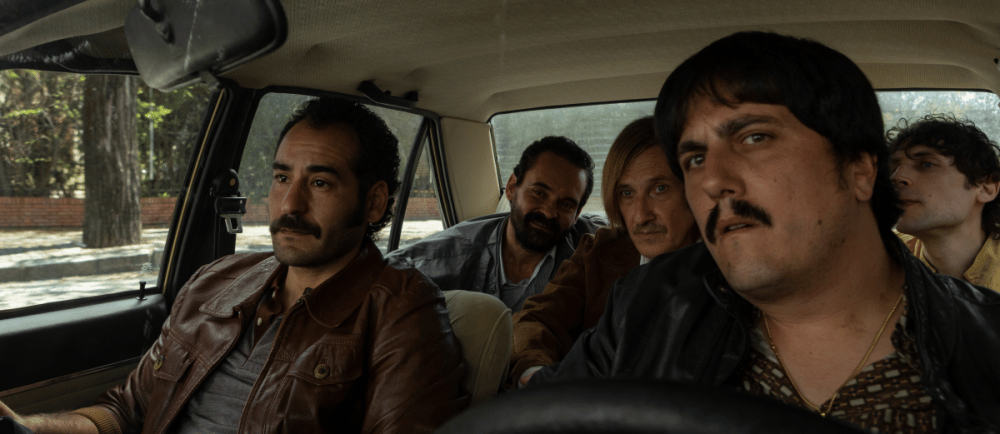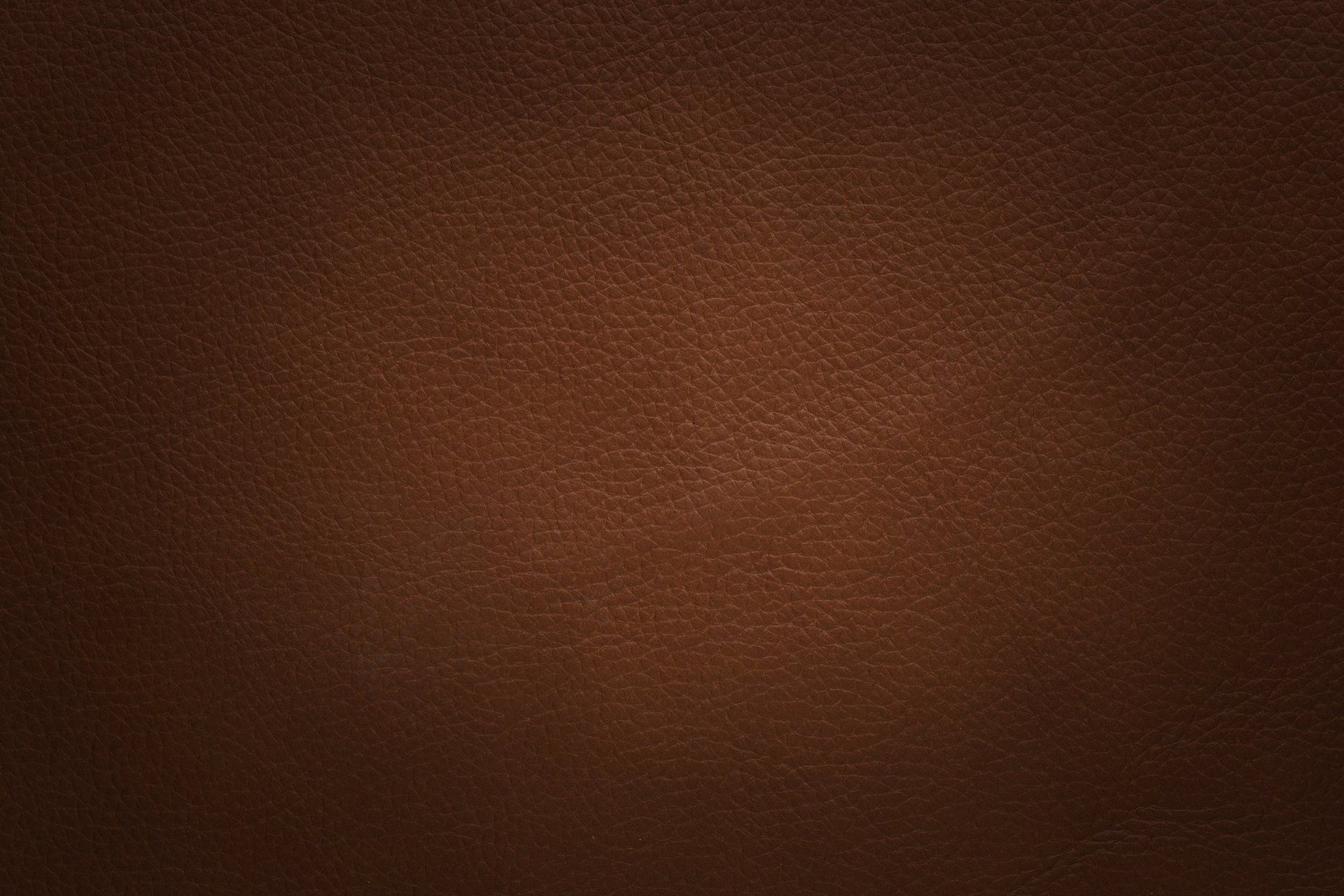From an Andalusia-Set Caper and Tales of the Broken Hearted, 10 Spanish Titles to Keep on the Radar at Valladolid
According To The variety Opening with Isabel Coixet’s well-reviewed Italian drama “Three Goodbyes,” closing with “Always Winter,” the latest from Goya best picture winner David Trueba, and regaled by works by two of Spain’s fast-emerging auteurs, Rafael Cobos and Diego San José, this year’s Valladolid International Film Festival delivers its most powerful punch, in global eyes at least, in its rich lineup of recent Spanish debuts or out-and-out world premieres. In an indication of its depth, the selection also features world premieres from Judith Colell and Fernando Franco, both Sebastián Special Jury Prize winners. A Toronto bow, in “Three Goodbyes” Alba Rohrwacher “dazzles in a humane, heartfelt drama” as the “luminous center of a charmingly bittersweet and life-affirming movie,” adapted from the works of the late author Michela Murgia, Variety wrote. One from the heart from Trueba, director, novelist, journalist, “Always Winter” adapts his “Blitz,” a 2015 novella, again plumbing romantic break-up, as Migueli, a landscape architect, arrives at a Brussels conference with girlfriend Marta, his only mainstay. Then she leaves him, his emotional polar north blown. “It’s like the emotional death of the beloved,” Trueba tells Variety. “From that point on it’s as if life is a matter of surviving that absence, going on living despite that absence.” One of the most anticipated world premieres at Valladolid, “Golpes” weighs in as the feature film debut of Cobos – the near career-long co-scribe of Alberto Rodríguez (“Marshland,” “The Plague”), and already a notable director, after short form series “The Left-handed Son.” One from the heart from Trueba, director, novelist, journalist, “Always Winter” adapts his “Blitz,” a 2015 novella, again plumbing romantic break-up, as Migueli, a landscape architect, arrives at a Brussels conference with girlfriend Marta, his only mainstay. Then she leaves him, his emotional polar north blown. “It’s like the emotional death of the beloved,” Trueba tells Variety. “From that point on it’s as if life is a matter of surviving that absence, going on living despite that absence.” One of the most anticipated world premieres at Valladolid, “Golpes” weighs in as the feature film debut of Cobos – the near career-long co-scribe of Alberto Rodríguez (“Marshland,” “The Plague”), and already a notable director, after short form series “The Left-handed Son.” “A thriller about blood ties and memory,” says Cobos, it depicts “a portrait of a contradictory, disorientated country unable to settle the score with its past.” Best-known for co-writing “Spanish Affair,” the highest-grossing Spanish movie ever in Spain, Diego San Jose created “Celeste” starring Carmen Machi as a drab tax collector. In “Jakarta,” San José goes one step dowdier, taking as his hero Joserra, portrayed by the inimitable Javier Cámara, star of Almodóvar’s “Talk to Her,” who plays a badminton player, touring nondescript Spanish towns – “neither capitals nor with the charm of a village,” with a maybe budding badminton champion. Joserra repped Spain in the 1992 Barcelona Olympics. He was knocked out in the first round. “I feel that not achieving dreams is more like adult life than achieving them. And, curiously, losers, who are less common in fiction, are the overwhelming majority in reality,” San José has told Variety. Valladolid’s Spanish lineup says much about the state of Spanish filmmaking, in a year when two movies – Oliver Laxe’s “Sirât,” which went on to share Cannes Jury Prize, and Carla Simon’s “Romería” played Cannes competition, the first time since 1988 that Spain has achieved a double without one of the films being directed by Pedro Almodóvar. Such is the wealth of Spanish cinema that it cannot be contained by election at Berlin, Cannes, Venice and San Sebastián official selection. Playing Valladolid, titles can also obtain, arguably, a higher profile. A second takeaway: France now has Spain squarely on its radar. Talents competing at Valladolid are hardly local figures. Of world premieres, “Golpes” is co-produced by upscale French heavyweight Playtime. Cobos’ first directorial outing, “The Left-Handed Son,” won the top prize in the short form category at Canneseries in 2022. Franco’s “Subsuelo” is sold by France’s Elle Driver. San Jose’s “Celeste” won best series and actress (“Carmen Machi”) at France’s Series Mania this year. When he published “Blitz,” Trueba, a notable novelist who swept Spain’s Spanish Academy Goyas in 2013 with “Living Is Easy with Eyes Closed” was hailed by French newspaper Le Figaro as the “wonder boy of the Iberian cultural scene.” Coixet played Cannes competition in 2009 with “Map of the Sounds of Tokyo,” opened Berlin with Juliette Binoche starrer “Nobody Wants the Night.” Also, Valladolid this year underscores Spain’s step-by-step shunt from straight-arrow art-house to upscale mainstream with an arthouse edge. Franco and Colell are known for their dramas, plumbing complex, contrary intimacy. “Subsuelo” is a psychological drama digging deep into family secrets, which is another way into the same themes. “Frontier” marks a large step up for Colell in scale and her first thriller, set on the Spain-France border in 1943. Its stakes can hardly be larger: a matter of life and death for Jews trapped in Nazi-occupied France and often for those who shepherded them across the high-Pyrenees into Spain. That tension reigns in the film. “Always Winter” sounds from its title like a deadly sober drama. “But as soon as you see David Verdaguer [who won a Goya playing standup icon Eugenio], you know there’s a irony at work,” says Trueba. Indeed, at the most tragic moment in the whole film, when Marta tells Miguel she’s dumping him, the only thing Miguel can do is crack jokes. San José has a “remarkable ability to explore complex themes without ever losing that sense of accessibility for the audience, which makes him quite unique,” Fran Araújo, executive producer of Movistar Plus+ Originals, says of “Jakarta.” “Golpes,” likewise is a crossover. “We know that buyers in Cannes are not only looking for festival films but also for highly marketable audience pleasers like ‘Golpes,’” Playtime co-CEO Nicolas Brigaud-Robert has said. A closer look at 10 titles to track at this year’s Seminci-Valladolid Film Festival, which runs Oct. 24-Nov. 1. “This Body of Mine,” (“Este Cuerpo Mío,” Afioco Gnecco, Carolina Yuste, Potenza Producciones) Glimpsed via extracts at Locarno’s Spanish Previews, an ingratiating doc-feature road trip tale of identity and friendship. Afioco, the in-transition Italian-Chilean director, and unflagging companion Carolina – Yuste, a major Spanish star after “Jokes & Cigarettes” and “Undercover” – set off to Chile to secure Afioco’s sense of acceptance – his of self and his family’s. Shot with a sense of humor as it unpacks the psychological challenges of transsexuality. “Frontera,” (Judith Colell, Coming Soon, Diagonal, Crespeth Films, Bulletproof Cupid) Harnessing the period drama expertise of Banijay’s Diagonal and its key crew, a crossover of historical thriller and arthouse social point which characterises Collel (“Elisa K.,” “15 Hours”). Set in a high Pyrenees village in 1943, a Catalan customs officer defies orders, helping Jews escape from Nazi-occupied France. Sold to Menemsha, studied in its craft, genuinely tense and gorgeously shot, highlighting the heavenly mountains and a historical hell. “Forastera,” (Lucía Aleñar Iglesias, Vilaüt Films, Presenta, Lastor Media, La Perifèrica Produccions, Fox In The Snow, Kino Produzioni) Just acquired for the U.S. by Grasshopper Film, while landing Spanish, Japanese and Swedish distribution deals for Alpha Violet, Toronto’s Fipresci Prize winner for Emerging Filmmakers. In it, Cata quietly steps into the role of family matriarch following the unexpected death of her grandmother during a sun-drenched summer holiday in Mallorca. “Cleverly playing with taboo, Iglesias’s debut proves an insightful, captivating look into the darker corners of grief through the familiar lens of a coming-of-age narrative,” Variety has written. “Golpes,” (Rafael Cobos, Vaca Films, Grupo Tranquilo, Playtime) Seville, 1982 Migueli, leaves jail to get together his old crew for a series of bold heists to reclaim the land where his Republican father lies in an unmarked grave, soon to be erased by developers. Closing in on him is his own brother, a cop, equally traumatized by his father’s death, which he couldn’t prevent. Boasting two of Spain’s finest performers, and redolent in period detail, punctuated by telling, occasional archival footage, a paean to what’s held Spain together for centuries: family. “Always Winter,” (“Siempre es invierno,” David Trueba, Ikiru Films, Atresmedia Cine, Wrong Men) Marta dumps Migueli. He’s taken for a few days – and nights – by Olga, 20 or more years older, who offers a way forward in emotional terms, though neither knows to where. A break-up tale which grows as a mid-life coming of age apprenticeship, casting big love rupture in large life cycles. Starring David Verdaguer, Amaia Salamanca, an international name after “Grand Hotel” and “Velvet,” and Isabelle Renauld, star of Palme d’Or winner “Eternity and a Day.” “Jakarta,” (Diego San José, Buendía Estudios Canarias, Mediapro Canarias) The series’ second sequence says it all. Drab high-rise flats, past which drives Joserra, unshaven, lived-in track suit, singing love ballad “Adoro,” but he can’t remember the words. Stuck in 1992, where he played badminton at the Olympics, he discovers a badminton prodigy and determines to make her a champion. Starring the ever inimitable Javier Cámara (“Talk to Her”), San José’s follow-up to Series Mania winner “Celeste” from one of Spain’s most engaging mainstream TV auteurs. “Last Night I Conquered the City of Thebes,” (“Anoche conquisté a Tebas,” Gabriel Azorín, Dvein Films, Filmika Galaika and Bando à Parte) In modern times, friends trudge through mud to ancient thermal Roman baths in Galicia’s countryside. There, the men confess their most heartfelt fears, past and ancient Roman present melding. Sold by MoreThan Films, a buzz title at September Venice Days, now breaking out abroad. “Shimmering with beauty and freighted with mystery, Gabriel Azorín’s feature debut is a cosmic hangout film that announces its director as a major new voice,” the Lincoln Center has recently proclaimed. “Lionel,” (Carlos Sáiz, Bluconica Films AIE, Blur Media, Icónica, Promenades Films) The doc/fiction hybrid that cleaned up at March’s Málaga Mafiz Works in Progress, winning prizes from Cine y Tele, Yagán, REC Festival and Sideral, which now handles international rights. Saiz’s feature debut, Inspired by the real-life story of his friend Lionel and his family—who portray themselves in the film — transformed into a Spain-France road movie between Spain and France that “questions the very essence of what it means to be family,” says Sáiz. “Subsuelo,” (Fernando Franco, Lapona, La Aventura, Kowalski Films, Ferdydurke Films, Blizzard Films AIE.) A change of register for Franco, after three dramas – “Wounded” (2013) “Morir” (2017) and “The Rite of Spring” (2022), the first and last San Sebastián competition players, with a move towards genre, made in a Neo-Noir style, forefronted by an oppressive soundtrack as adolescent twins, brother and sister, confront the fall-out from an car accident. The film is “about family as an institution and that rather complex sentiment of guilt, as well as lies in their different facets,” says Franco. “Three Goodbyes,” (Isabel Coixet, Cattleya, Ruvido Produzioni, Bartlebyfilm, Buena Pinta Media, Vision Distribution, Bteam Prods, Perdición Films, Tres Cuencos, Apaches Entertainment) The latest from the highest-profile Spanish director at Vall adolid, adapting a short story collection by Italy’s Michela Murgia, who died of cancer at 51. Marta and Antonio, partners of many years, quarrel and suddenly break up. Flashing back to their time together, the film anticipates the final goodbye where Marta receives a devastating medical diagnosis. “In other hands, this would cue a standard disease-of-the-week weepie, but Coixet keeps the tone lightly wistful and wise,” Variety says.
bi
10/25/20251 min read


My post content

